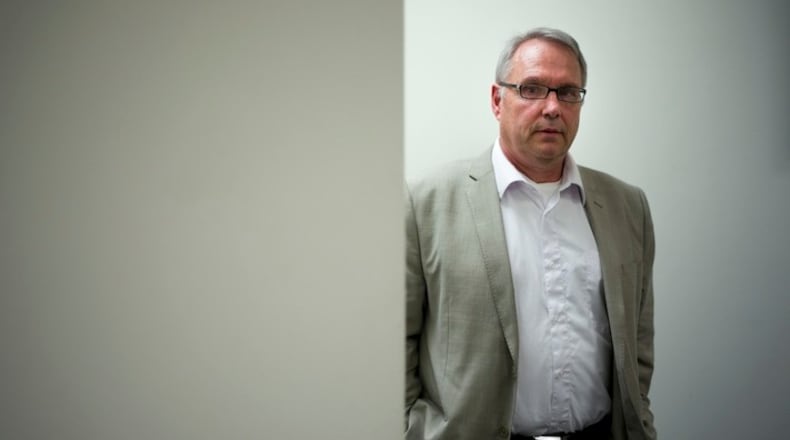LOS ANGELES -- A Los Angeles attorney who leads a political party that advocates white separatism is on Donald Trump's list of Republican convention delegates, records show.
William Johnson, the chairman of the American Freedom Party, is among a list of delegates pledged to the presumptive Republican presidential nominee that was published by the secretary of state's office Monday night.
The news was first reported by Mother Jones.
Calls to Johnson's Los Angeles office and an email to the Trump campaign seeking comment were not immediately returned, but Democrats wasted little time in attacking the bombastic businessman.
"Donald Trump is the candidate that will Make America Hate Again," Mark Paustenbach, national press secretary for the Democratic National Committee, said in a statement. "Trump's racist, xenophobic candidacy continues to fuel a resurgence of white nationalism in the United States, and to elevate a man like this shows that Trump has neither the temperament nor judgment to serve as president."
Johnson told Mother Jones that he disclosed details about his background and activities when applying to be a delegate for Trump, but said he did not outright describe himself as a "white nationalist."
"I just hope to show how I can be mainstream and have these views," he said. "I can be a white nationalist and be a strong supporter of Donald Trump and be a good example to everybody."
The Southern Poverty Law Center describes the American Freedom Party as an organization founded by "racist Southern California skinheads that aims to deport immigrants and return the United States to white rule." The group's leadership also includes Kevin B. MacDonald, a professor emeritus at California State University, Long Beach considered to be an anti-Semite, according to the SPLC.
Johnson, who unsuccessfully ran for a judgeship in Los Angeles County in 2008, describes himself as an international corporate lawyer on the party's website.
Joanna Mendleson, an investigative researcher with the California branch of the Anti-Defamation League, said groups like Johnson's American Freedom Party highlight a tonal shift in the white supremacist movement, away from brash displays of violence and toward a more intellectual approach.
"What these individuals do is they kind of use pseudo-intellectual racism to articulate their views, and they attach themselves to national topics, be it immigration, or the elections currently, and insert themselves into the conversation," she previously told the Los Angeles Times. "These are not your racist skinheads. These are individuals in suits who present themselves in a professional manner."
Johnson was one of the keynote speakers at Camp Comradery last year, a gathering of white separatists in Bakersfield that featured speeches from other national separatist figures including Matthew Heimbach, according to Mendleson.
"AFP Chairman Bill Johnson was in attendance, and he gave the first speech on Saturday morning. He encouraged the audience to consider running for political office and get the pro-White message, a message concerning our interests and policies, onto the public airwaves," read a summary of the event posted to the party's website.
Brian Levin, director of California State University, San Bernardino's Center for the Study of Hate and Extremism, said Johnson is well-known in extremist circles, and his appearance among Trump's delegates highlights the way this year's election cycle has served to legitimize voices that were previously considered fringe.
"This white nationalist is someone that any respectable, mainstream candidate should leave skid marks running from," Levin said.
Trump, who has often been criticized for his controversial statements about Mexicans and a call to temporarily deny Muslims access to the country, ran into trouble earlier in his campaign when he was slow to disavow an endorsement from David Duke, the former grand wizard of the Ku Klux Klan.
Trump's other California delegates include House Majority Leader Kevin McCarthy of Bakersfield, Rep. Darrell Issa of Vista and Harmeey K. Dhillon, vice chairman of the state's Republican Party.
With Ohio Gov. John Kasich and Texas Sen. Ted Cruz dropping out of the race, California's June 7 primary will serve as little more than a coronation for Trump.
In the state's Republican primary, campaigns submit a list of pledged delegates -- three from each of California's 53 congressional districts plus 10 statewide representatives -- before the election.
California's 172 delegates are allocated based on which candidate wins in each district; an additional 13 go to the statewide winner.
About the Author
Keep Reading
The Latest
Featured


